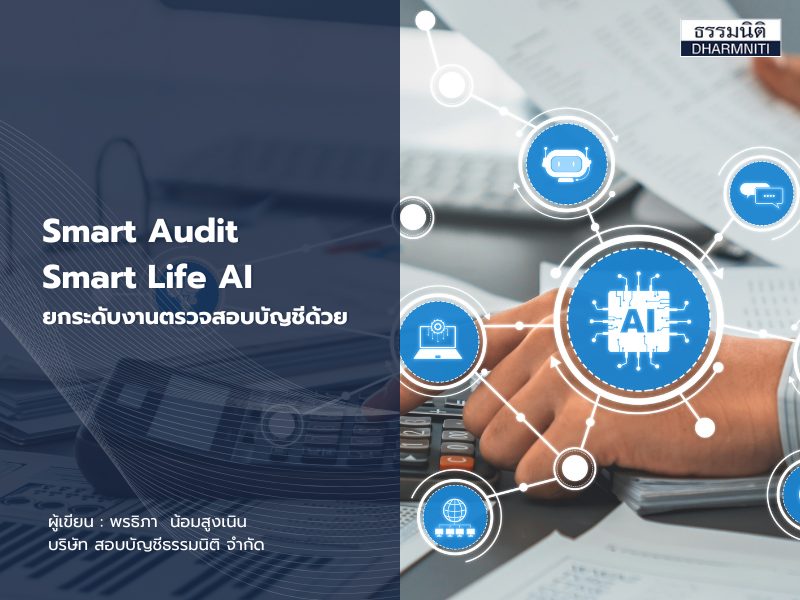Smart Audit, Smart Life Elevate your auditing work with AI
Change your mind! “Auditing” isn’t just about boring numbers, but it’s a cool career in the business world.
Many people may have the image of “auditors” as young men and women with thick glasses who spend their days looking down at piles of documents and mind-boggling numbers. But in reality, this career is full of challenges and excitement, and is one of the key cogs that drive the business world to transparency and trustworthy.
Ledger Hunter: the truth hidden in the numbers
Imagine yourself as a detective tasked with solving the mystery of a large company’s audit, using “financial statements” as a roadmap and “transaction evidence” as clues. You will need to use your advanced analytical skills, keen observation, and intuition to question and trace the financial trail, verify accuracy, and find any hidden irregularities, be it unintentional errors or even complex fraud.
Tech-Powered Auditor : So Cool! When Auditors join forces with cutting-edge technology
Forget the image of checking documents one by one. Today, auditors work with high-tech technologies to increase efficiency and accuracy in auditing.
- Artificial Intelligence (AI): In today’s digital age, driven by innovation, Artificial Intelligence (AI) has become a key player in revolutionizing the way we work. With its ability to learn, analyze, and make decisions, AI helps improve efficiency and effectiveness. Building Machine Learning (ML): The Heart of Self-Learning AI.
At the heart of AI is Machine Learning (ML), a process by which AI learns from data. We “train” AI, or feed it a human-defined set of data to the AI model. For example, if we want an AI to remember sales data, we feed it a long list of invoices/delivery notes with the names of debtors or add necessary data segmentation. Once the model learns from this dataset, it can accurately apply this knowledge to new, never-before-seen data. This is how AI becomes more than just a program that follows instructions, but a system that can evolve and improve itself.
AI in Auditing: Improving Accuracy and Reducing Errors
Imagine AI being used in auditing. For example, in auditing financial documents, AI can learn patterns of anomalies or fraud from historical data. As new documents are submitted, AI can analyze and identify suspicious areas much faster and more accurately than humans alone. This is especially true for large corporate audits. It requires accurate and reliable processing of large amounts of data, which will greatly reduce errors and save time
Basic program/platform for creating AI: starting point for developers
| Program | จุดเด่น | เหมาะกับ |
| Python + Pandas + Scikit-learn | Analyze data, detect outliers, create various ML models | Basic of Python, Auditor who uses Data, Analyst |
| Power BI + Python Script | Creates an interactive risk analysis dashboard | Beginners |
| AutoML (Google AutoML) | Let AI analyze and select the appropriate model by itself | Those without ML basics |
| Jupyter Notebook | Suitable for designing analysis and explaining with graphs/explanations at the same time | Instructors/researchers in accounting and audit analytics |
Building ML is just the beginning. Tailoring AI to your organization and specific auditing tasks can be time-consuming, not just coding. It involves several key factors, requiring time and resources to gather enough data for learning, leading to appropriate model selection and development. Therefore, purchasing off-the-shelf solutions with built-in AI/ML is a popular option, especially for organizations looking to quickly implement AI in auditing. However, some off-the-shelf solutions may not be completely suitable for the organization or auditing methodology. If users can accept this, it is a great option that can significantly reduce time and resources.
- Data Analytics: Use specialized software like Caseware IDEA or Galvanize to drill down into data, filter, and accurately find suspicious items or use Microsoft Excel (with add-ins), a basic tool that every auditor must use. Newer versions of Excel have much more powerful data analysis tools, such as Power Query (for retrieving and transforming data) and Power Pivot (for analyzing large amounts of data), which are very important tools for auditing, especially for auditing large companies today.
- Drones: Take the next step with the use of drones to survey and count inventory in factories or large warehouses!
When technology enhances auditing work:
- Work Smart: Use technology as a labor-saving tool, making work faster and more efficient.
- Stay up-to-date with trends: Learn and work with new technologies that are constantly being developed.
- Increase accuracy: Reduce potential human errors and make audit results more reliable.
The auditing profession is therefore not just a boring “rule keeper”, but an “important consultant” and a “guardian of transparency” who uses both science and art in their work. It is a profession that combines the challenges of a detective, the modernity of IT people, and the credibility of an expert, all in one!
Author: Pornthipa Nomsungnoen
Source: https://cloud-ace.co.th/blogs/o0v9a6-ai-machine-learning-ml-ai-ml-goog

